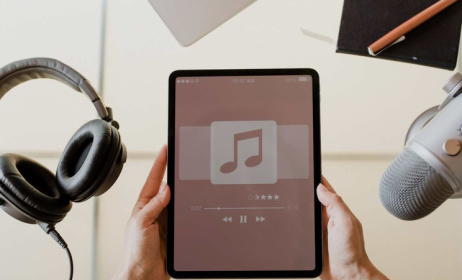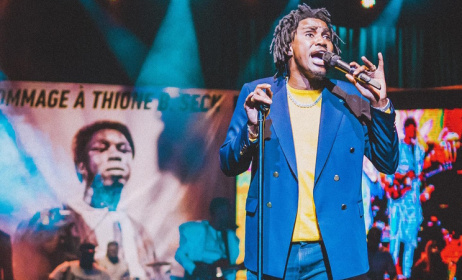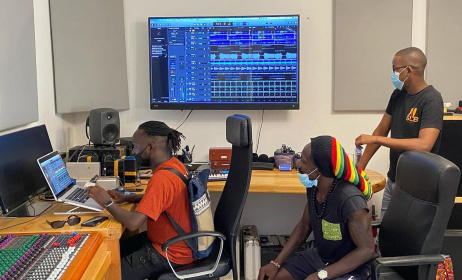Kenyan artists protest foreign music dominance
Music artists together with other entertainment stakeholders took to the streets in Nairobi on 10 August 2015 to protest against the dominance of foreign music on the Kenyan airwaves.
 Musicians in Kenya protest. Photo: www.nairobinews.co.ke
Musicians in Kenya protest. Photo: www.nairobinews.co.ke
The discontent by Kenyan artists has been going on for weeks now. In late July singer Victoria Kimani took to twitter to express her disappointment over Kenyans’ “lack of loyalty and sense of pride” towards their own stars in music and the arts in general.
The ‘Mtoto’ and ‘Prokoto’ singer who is a signee of Nigeria’s Chocolate City record label continued to chide the unsupportive fans for not valuing Kenyan artists’ efforts.
The protesting artists under the Kenya Musician Movement (KENAM) protested the lack of airplay and bias towards South and West African music as they demanded for 70% Kenyan music airplay on all platforms.
Lack of airplay is one of the underlying issues that the artists came out to strongly condemn as well as against short code service providers (PRSPs) after the service providers blocked a deal between artist bodies and Kenya’s leading telecommunication company Safaricom that was meant to take place in early August.
Led by Irene Mutisya and Daniel Masivo, the artists went to court on 31 July to file a case against Music Copyright Society of Kenya (MCSK) and Safaricom for blocking the agreement signing that was meant to have artists benefit more from Safaricom’s Skiza music tones. Skiza Tunes is a service from Safaricom that allows phone owners to entertain the callers with their favourite song.
In the new deal that brought all Collective Management Organisations (CMOs) together artists are expected to get 15% from Skiza sales up from the current 6% they have been getting. The deal also aims to do away with middle men and the five percent commission paid to PRSPs as well as push up local content broadcasted by Kenyan media to 70%. Artists have condemned publicly the rationale behind their short code, playback and download earnings.
But the media and other citizens believe that the artists should produce quality music before demanding for broadcasters to air their content.
‘Surely how can one play some noise in the name of songs?’ asked Tom Yibei, a concerned citizen while commenting on the issue on social media. ‘Let listeners enjoy quality music from the world. Until Kenyan musicians learn how to write sensible songs, that is when I can listen to their content let alone buying their music.'
























Commentaires
s'identifier or register to post comments